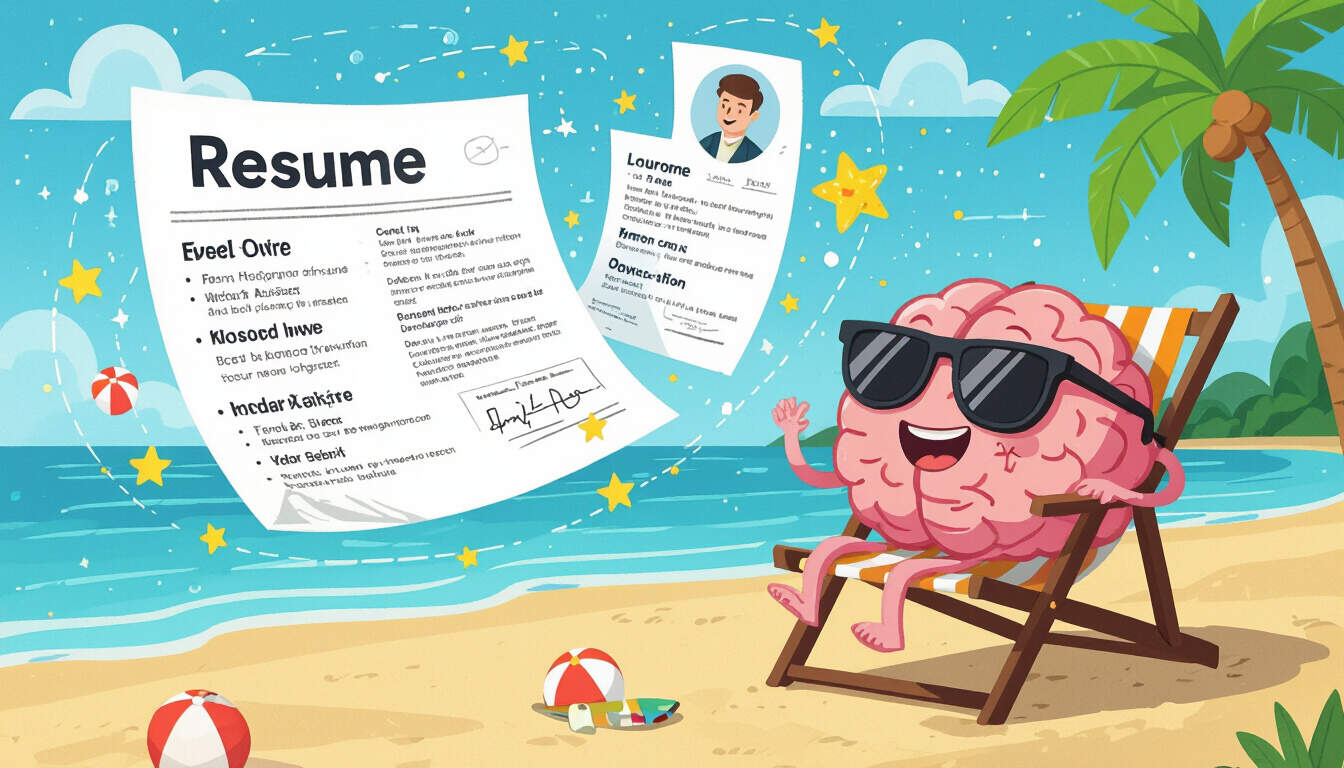Practical Tips for Reducing Cognitive Load During Resume Building
 by Lilian Nienow
by Lilian Nienow
Learn how to ease mental strain while creating a resume through simple strategies that offload cognitive demands. This guide offers actionable advice for students and professionals to streamline the process and boost focus without overwhelming the mind.

In daily routines, tasks like building a resume can create significant mental strain. This strain, known as cognitive load, occurs when the brain juggles too many demands at once. For students and professionals, managing this during resume creation is essential for clear thinking and better outcomes.
Cognitive load refers to the amount of working memory in use. When preparing a resume, individuals often deal with organizing information, formatting documents, and recalling experiences all simultaneously. This can lead to fatigue and errors. By applying offloading techniques, people can shift some of this burden to external tools or methods, making the process smoother.
One effective approach is to break the task into smaller steps. Start by listing key experiences and skills on a simple document. This method allows for focused attention on one element at a time, reducing overall demand on mental resources. Cognitive load decreases when tasks are segmented, enabling better retention and accuracy.
Another strategy involves using digital tools to automate repetitive actions. For instance, templates in word processors can handle layout and design. These tools take over the visual arrangement, freeing up mental space for content refinement. Offloading techniques like this mean less time spent on minor details and more on meaningful aspects of the resume.
Visual aids can also play a role. Creating a mind map of career highlights before writing helps in organizing thoughts visually. This external representation of ideas lightens the cognitive burden by providing a quick reference point. When building a resume, such aids ensure that important details are not forgotten amid the chaos.
Prioritizing content is crucial too. Begin with core sections like work history and education, then add extras like skills or certifications. This step-by-step prioritization prevents the mind from being overloaded with decisions about what to include first. Offloading techniques here involve deciding in advance, perhaps through a quick outline, to maintain a steady workflow.
Collaboration offers another way to lighten the load. Seeking feedback from peers or mentors can distribute the thinking process. Instead of second-guessing every word alone, sharing drafts allows others to spot issues, thus sharing the cognitive effort. This not only improves the resume but also reduces personal mental fatigue.
Common Challenges and Solutions
Many face difficulties in maintaining focus during extended sessions. To counter this, incorporate short breaks using techniques like the Pomodoro method, working for 25 minutes then resting. These pauses allow the brain to recover, preventing buildup of strain.
Environment matters as well. A clutter-free workspace minimizes distractions, letting the mind concentrate on resume building without unnecessary interruptions. Simple adjustments, such as organizing your desk, can make a big difference in managing mental demands.
For those new to the process, learning from examples helps. Reviewing sample resumes online provides a framework without requiring original invention each time. This borrows structure from existing sources, offloading the need to create from scratch and speeding up progress.
Quantifying achievements is another tip. Use numbers and metrics to describe past roles, as this makes descriptions more concrete and less abstract. For example, instead of saying "improved sales," note "increased sales by 20%". This specificity reduces the cognitive effort needed to articulate experiences clearly.
Long-Term Benefits
Adopting these strategies leads to more than just a polished resume. Over time, they foster habits that enhance overall productivity. By consistently applying offloading methods, individuals build resilience against mental overload in various life areas, from academic projects to professional tasks.
In practice, these tips have shown positive results. Students report feeling less stressed during job applications, while professionals note improved efficiency in career development. The key is consistency and adaptation to personal needs.
To wrap up, integrating these approaches into resume building not only eases immediate pressures but also supports ongoing cognitive health. Whether you're a student preparing for internships or a professional seeking advancement, these strategies offer a path to clearer, more effective work.
